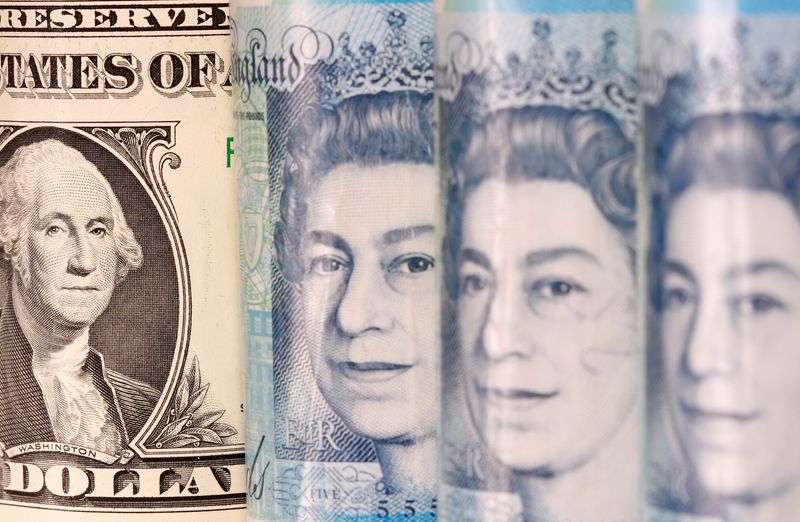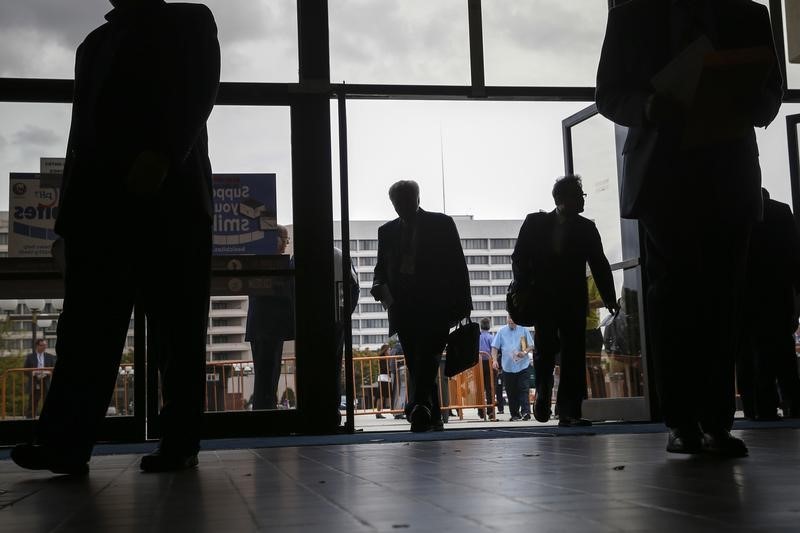By Sujata Rao
LONDON (Reuters) - The pound slipped to a six-week low on Friday against the euro, which was buoyed by the ECB's acknowledgement that an interest rise this year was not out of bounds after all, a call that overshadowed the Bank of England's 25 basis-point rate rise.
The pound also snapped a five-day winning streak against the dollar, with some analysts noting BoE caution on the longer-term inflation outlook.
The BoE https://www.reuters.com/business/bank-england-hikes-rates-clamour-contain-spiralling-inflation-2022-02-03 raised interest rates by 25 bps in an unexpected split decision, warning inflation could top 7%. Four of the nine Monetary Policy Committee members wanted a 50 bps move.
Arguably, the greater surprise was delivered by the European Central Bank https://www.reuters.com/business/ecb-seen-hold-may-acknowledge-inflation-risks-2022-02-02 whose president chose not to repeat her view that a 2022 rate hike is "very unlikely" and acknowledged a change in the inflation picture.
That put the euro on course for its biggest weekly rise since March 2020 against the dollar, while against the pound it has firmed 1.6% this week, the most since April 2021. By 1600 GMT, it was up 0.6% at 84.56 pence, after earlier rising as high as 84.7 pence.
The pound also slipped 0.5% against the dollar at $1.3533, down from the two-week high touched at $1.3628.
"The ECB has sprung the bigger surprise, that's why the euro is stronger. The BoE delivered what was priced," said Mizuho senior economist Colin Asher.
He noted that while markets had priced in rates hitting 1.5% by year-end, Bailey had told them not to assume the BoE was embarking on a long series of rate hikes.
"There is a lot of uncertainty on longer-term inflation forecasts but you have a surge of inflation under your nose and the BoE are a bit worried about their inflation credibility which is why they want to front load rate hikes," Asher added.
The BoE move sent gilt yields soaring, and sent the 2-year/10-year yield curve to its flattest since August 2020, with a gap of just 17 bps .
HSBC analysts noted however the BoE's downward revision to inflation forecasts, to 1.6% by the end of its forecast period, assuming interest rates at 1.5% by mid-2023.

"Effectively, the BoE is telling the market that the current profile is potentially too aggressive...This may make it harder for the BoE to deliver an overall tightening cycle that matches market expectations, creating a longer-term drag for sterling," HSBC told clients.
Investors are also monitoring political developments as Prime Minister Boris Johnson fights to shore up his authority after the resignation of several aides. He has so far refused to quit over revelations that he and some of his staff attended Downing Street parties during COVID lockdowns.
